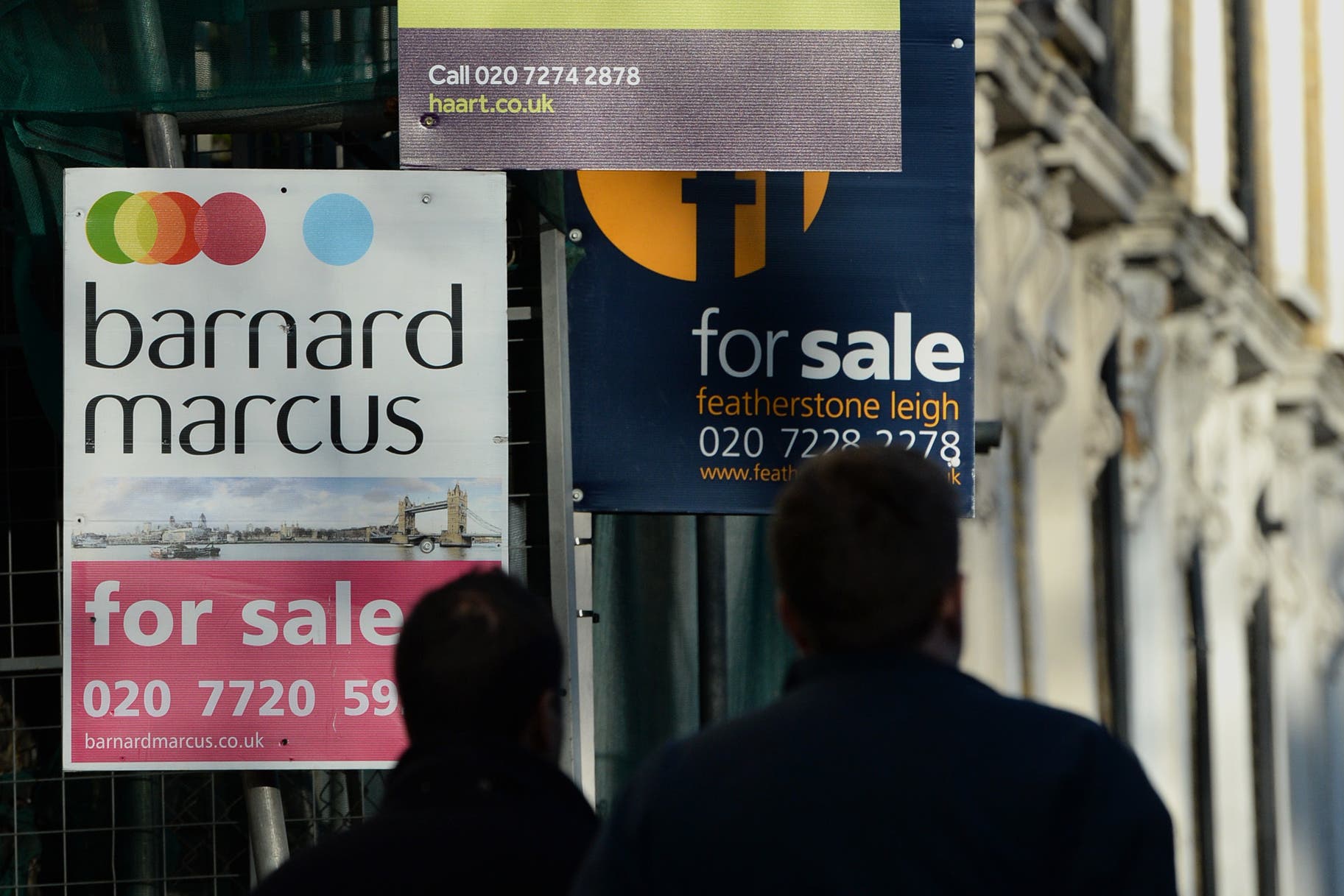Annual house price growth reaches fastest rate since December 2022
Nationwide Building Society said UK house prices rose 0.3% month-on-month in July.

Your support helps us to tell the story
From reproductive rights to climate change to Big Tech, The Independent is on the ground when the story is developing. Whether it's investigating the financials of Elon Musk's pro-Trump PAC or producing our latest documentary, 'The A Word', which shines a light on the American women fighting for reproductive rights, we know how important it is to parse out the facts from the messaging.
At such a critical moment in US history, we need reporters on the ground. Your donation allows us to keep sending journalists to speak to both sides of the story.
The Independent is trusted by Americans across the entire political spectrum. And unlike many other quality news outlets, we choose not to lock Americans out of our reporting and analysis with paywalls. We believe quality journalism should be available to everyone, paid for by those who can afford it.
Your support makes all the difference.Annual house price growth has picked up to the fastest rate since December 2022, according to an index.
UK house prices rose 0.3% month-on-month in July, Nationwide Building Society said.
This resulted in a slight acceleration in the annual rate of house price growth from 1.5% in June, to 2.1% in July – the fastest pace since December 2022.
Across the UK, the average house price in July was £266,334.
Robert Gardner, Nationwide’s chief economist, said: “Prices are still around 2.8% below the all-time highs recorded in the summer of 2022.
“Housing market activity has been holding relatively steady in recent months with the number of mortgages approved for house purchase at around 60,000 per month.
“While this is still (around) 10% below the level prevailing before the pandemic struck, it is still a respectable pace given the higher interest rate environment.
“For example, for borrowers with a 25% deposit, the rate on a five-year fixed-rate deal has been around 4.6% in recent months, more than double the 1.9% average recorded in 2019.
“As a result, affordability is still stretched for many prospective buyers. Indeed, for an average earner buying a typical first-time buyer property, the monthly mortgage payment is equivalent to around 37% of take-home pay, well above the 28% prevailing pre-Covid and the long-run average of (around) 30%.
“Investors expect (the Bank of England base rate) to be lowered modestly in the years ahead, which, if correct, will help to bring down borrowing costs. However, the impact is likely to be fairly modest as the swap rates which underpin fixed-rate mortgage pricing already embody expectations that interest rates will decline in the years ahead.
“As a result, affordability is likely to improve only gradually through a combination of wage growth outpacing house price growth, with some support from modestly lower borrowing costs.”
Alice Haine, personal finance analyst at Bestinvest by Evelyn Partners, the wealth manager said: “Mortgage rates have continued to ease in recent weeks with sub-4% fixed mortgage rates back on the scene after a rollercoaster ride of ups and downs for home loan rates this year amid rapidly shifting interest rate expectations.”
Marc von Grundherr, director of estate agent Benham and Reeves, said: “The fastest rate of house price growth since December 2022 demonstrates just how much market conditions have improved so far this year.”
Yopa chief executive Verona Frankish said: “Whilst the summer sun may have only just made an appearance, the UK property market has been heating up for quite some time now and the uplift in buyer activity seen at the start of the year is finally starting to cultivate a consistent level of positive house price growth.”